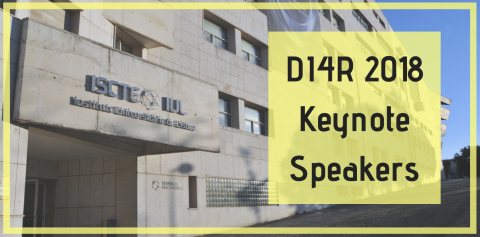Challenges for Researchers in the Digital Humanities: custom development vs. sustainable research infrastructures
Date:
Wednesday, September 28, 2016 - 14:00
Overview:
The digital evolution of our society is increasingly affecting and enabling research in the humanities where digital resources and cultural datasets are now being considered as valuable research material. This evolution has increased the need for infrastructures and web environments where researchers from the humanities can collaboratively work on their data and even actively involve citizens. But while this digital evolution also brings new opportunities for service providers, there are many challenges to overcome when collaborating with humanities research groups in the development of their research infrastructures. At LIBIS, a service provider for information solutions at the University of Leuven (KU Leuven - Belgium), we have experienced some of the main issues being the sometimes limited technological knowhow of the researchers, but especially the lack of resources for the continued maintenance and support of the digital humanities infrastructures and datasets after the project funding period has ended.
This presentation focusses on a number of Humanities infrastructure projects in which library, archival and museum tools have been used in combination with other open source and proprietary systems to provide a sustainable and innovative environment for different humanities research groups. We like to share our experiences on the active collaboration with the researchers in the writing of project proposals and the design and development of their infrastructures as well as provide a set of recommendations concerning the selection of tools and standards to guarantee a long lasting collaboration.
Target Audience:
Service providers, specifically for research groups with smaller budgets.
(Humanities) researchers looking for sustainable yet flexible infrastructure.
Benefits for Audience:
This presentation focuses on a number of Humanities infrastructure projects in which library, archival and museum tools have been used in combination with other open source and proprietary systems to provide a sustainable and innovative environment for different humanities research groups. We like to share our experiences on the active collaboration with the researchers in the writing of project proposals and the design and development of their infrastructures as well as provide a set of recommendations concerning the selection of tools and standards to guarantee a long lasting collaboration.
Biography:
Roxanne Wyns is Business consultant at LIBIS. With her background in Art History and Archaeology and experience in the field of data modeling, data interoperability, user engagement, virtual storytelling, long-term preservation and research data management, she supports KU Leuven and its partners in realizing their digital strategy.
LIBIS is a service provider of digital information solutions at the University of Leuven and a division of Leuven Research and Development (LRD) as well as a part of the University Library.
Topic 1: Challenges facing users and service providers
| Presenter | Organisation |
| Roxanne Wyns | LIBIS @ KU Leuven |
Download presentation:



